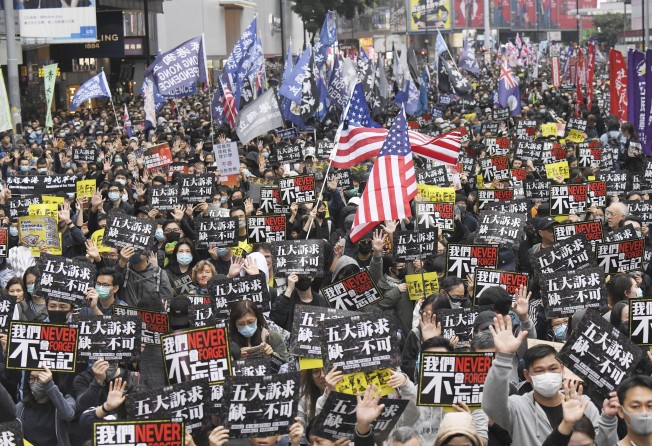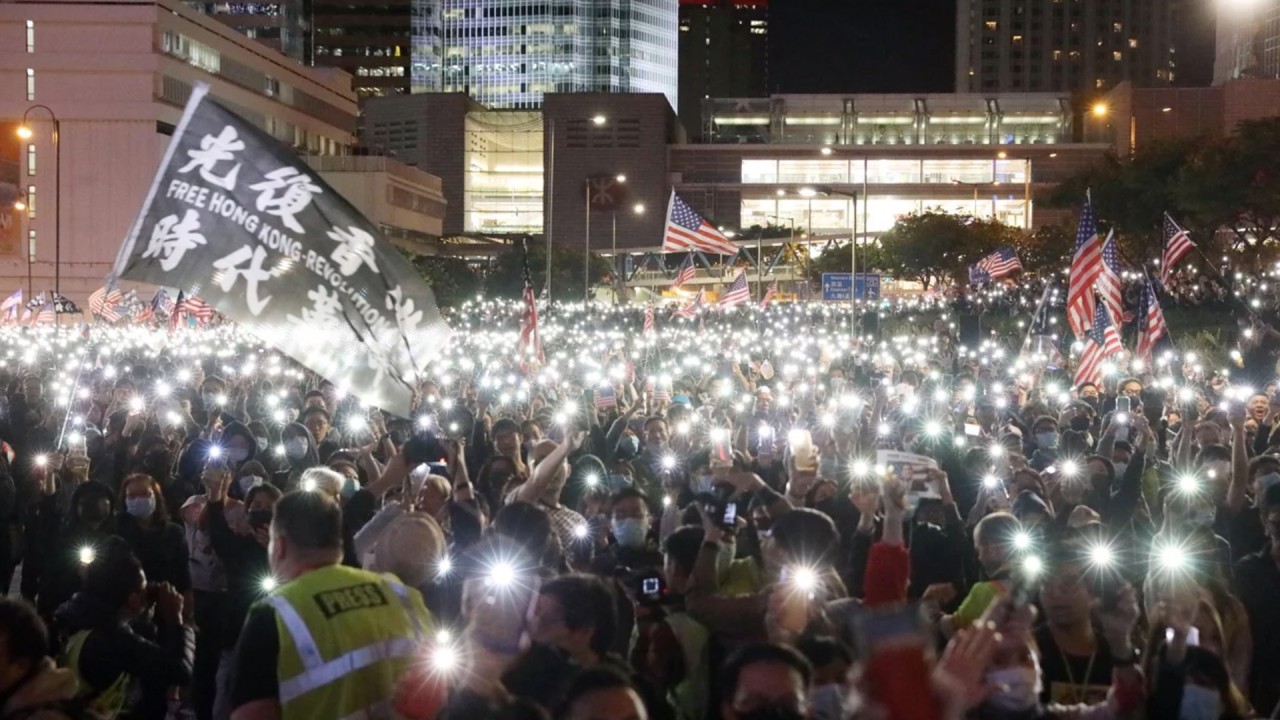Why Hong Kong does not need more democracy right now
- The chaos and instability unleashed by the quest for universal suffrage, the gridlock in the legislature and the government’s declining efficacy support a halt in the expansion of democracy

Ever since the future of postcolonial Hong Kong became an issue in the early 1980s, the quest for universal suffrage, narrowly equated with democracy, has in some quarters become the be all and end all of the “one country, two systems” project.
The outgoing British rulers deftly managed to escape censure for not granting Hongkongers universal suffrage much earlier, but China got blamed for allegedly breaking its “promise” of democracy in the Sino-British Joint Declaration on the future of Hong Kong.
In fact, the words “universal suffrage” never appear in the Sino-British Joint Declaration. The promise of universal suffrage was made by China in the Basic Law, as a long-term possibility and subject to certain clear preconditions: “in the light of the actual situation” and “in accordance with the principle of gradual and orderly progress”.
In early 2013, former law professor Benny Tai Yiu-ting unveiled his “Occupy Central with Love and Peace” plan to pressurise Beijing into fulfilling its “universal suffrage” pledge. The tumultuous events which followed hardly portray a path to democracy which accords with the principle of “gradual and orderly progress”.
The years that followed Tai’s clarion call have been anything but peaceful, punctuated by the unlawful occupation of Hong Kong’s business districts for 79 days in late 2014, the “fishball riot” in Mong Kok in early 2016, and the year-long, often violent anti-government protests which started in June 2019.
Some democracy advocates argue that the answer to Hong Kong’s democratic convulsions is more democracy. Yet the chaos and instability unleashed by the quest for universal suffrage, coupled with the gridlock in the legislature, and the government’s declining efficacy, lend strong support to the opposing view that the situation in Hong Kong calls for a halt rather than an advancement in the expansion of suffrage.
The origins and process of Hong Kong’s democratic development differ radically from those of Singapore, the Asian counterpart Hong Kong is often compared to. Led by its indomitable founding father Lee Kuan Yew, Singapore won its independence by fighting colonialists and communists, and negotiating a divorce with Malaysia.
In comparison, Hong Kong’s democratic stirrings in the 1980s did not emanate from the masses. A new, representative model was superimposed by the departing colonial masters, under the pretext of protecting human rights, but more with a view to curbing the potentially sweeping powers of the Chinese state.
Twenty-three years after the handover, the United States has filled the void left by the British to act as the promoter-in-chief of Hong Kong’s democracy. Brushing aside the preconditions set by China in the Basic Law, American politicians have introduced resolutions and legislation that would have Hong Kong leap forward to “freely and fairly nominate the chief executive”, and establish by 2020 “open and direct elections for all members of the Hong Kong Legislative Council”.

02:18
Rally in Hong Kong to thank US for supporting the Human Rights and Democracy Act
Such commands on Hong Kong were written into US laws, notwithstanding that the US itself took 144 years after its independence to grant women the right to vote, and 189 years to grant its black people an uninhibited right to vote with the passage of the Voting Rights Act in 1965.
The establishment of the National Endowment for Democracy in 1983 by the Reagan administration signals a clear shift in US foreign policy to focus on fostering democratic change in communist and non-communist “authoritarian” countries. Yet chronicles of American efforts to democratise show that waves of democratisation in many parts of the world have been interrupted or reversed.
Many of the newly formed democracies which have implemented universal suffrage only satisfy the formal or minimalist requirements of democracies.
Many such countries have not been able to maintain economic growth, guarantee the protection of individual rights and freedoms, stamp out corruption, ensure social justice or simply give their people a better life. They have failed miserably on the test of performance legitimacy.

While championing democratisation abroad, the US has consistently turned a blind eye to the fact that not all countries or territories are as exceptionally endowed with all the right conditions for a flourishing democracy as itself. Hong Kong’s fledgling democracy, unlike democracy in the US, was not founded by elites firmly committed to democratic ideals.
It was imposed top-down, and the elites, which in Hong Kong’s plutocratic society usually take the shape of well-heeled tycoons and professionals, soon found the opportunity costs of democratic politics not worth their labours. As the result, with few exceptions, Hong Kong’s elites have not taken part in competitive elections.
As the outcomes of the “primary” conducted by the pan-democratic camp last month manifest, the traditional democrats have been overshadowed by the militant fanatics, and the Civic Party, which used to be led by elites, have become hijacked by radicals. Following the enactment of the national security law, political parties have no future if they are found to be in cahoots with external forces to foster regime change.
A democracy cannot function effectively to give people hope if opposing camps cannot work together to solve problems and deliver change. Hong Kong’s democracy advocates are bound to fail if what they seek is political change which runs counter to China’s constitution and national policies. The recourse to violence and external pressure to enforce change would only provoke a sharp response, which could spell the untimely demise of Hong Kong’s fragile democracy.
Regina Ip Lau Suk-yee is a lawmaker and chairwoman of the New People’s Party